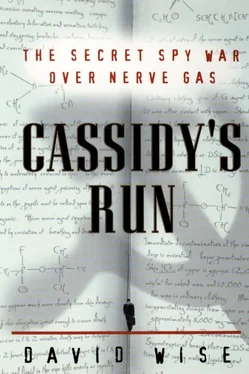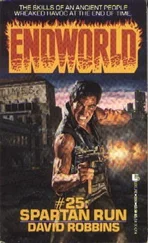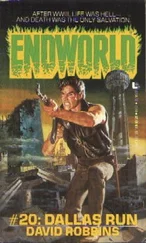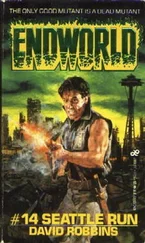Likhachev sought to soothe his agent. “We really like you,” he said. “You’re number one with us.”
Now that Cassidy had returned to civilian life, Likhachev encouraged him to find employment that would continue to give him access to information of interest to the Russians. He suggested a mapmaking agency or a government printing office where regulations or manuals were produced.
As they strolled along the Brooklyn streets, Likhachev worked the conversation around to his main purpose.
“Do you have any trouble getting on military bases?” he asked.
“No,” Cassidy replied, “I have a sticker on my car.”
“We’d like you to make several trips around the country,” Likhachev said. “You’ll be traveling around checking bases.” He then assigned Cassidy to go to the Dugway Proving Grounds in Utah, the nerve-gas test site, and to several other military bases.
“At Dugway, where you see humps, especially look for humps with pipes on them, let me know. And anything else you can find out about Dugway.” The Russian also asked Cassidy to travel to Key West and find out how many submarines were based there. He was instructed as well to visit the Orlando naval-training center and a nuclear-ammunition depot at the air force base in Charleston. Finally, he was told to spy on a 1,700-acre former army base at Slidell, Louisiana, across from New Orleans on the north side of Lake Pontchartrain. The base, once used as an artillery range, had been turned over to the Louisiana National Guard. The Soviets apparently suspected the army was hiding nerve-gas stocks at Slidell because they directed Cassidy to look for twenty mounds with pipes sticking up from them, the same configuration he was told to look for at Dugway. But Likhachev told Cassidy, without explanation, not to travel to the West Coast or New England.
Finally, Likhachev pressed Cassidy to find a replacement for himself, now that he had left the army. “He wanted me to try to develop other sergeants,” Cassidy recalled. “Did I know a sergeant who could do the work I was doing? He said, ‘There is a weakness in every man. We try to exploit it.’”
Cassidy realized he was in a delicate position; how could he satisfy the Soviets and still get out of the assignment? Cassidy remembered Nicky, a master sergeant at Edgewood Arsenal who had a job similar to his but in the other lab (DDEL). “I went up to Edgewood and took him and his wife to dinner—to renew my friendship, to see if he was still there and had the same job.”
With the FBI’s approval, Cassidy passed on the sergeant’s name to the Soviets. Behind the scenes, the bureau then warned Nicky that he might be contacted by a foreign intelligence service. The sergeant did receive a phone call from a foreigner, but the caller hung up.
Later, the Russians urged Cassidy to set up a meeting between one of the Soviets and the new sergeant. But Cassidy refused, and he hit upon a good excuse. It was too risky for him, he warned the GRU. “I told the Soviets I didn’t want to divulge to the sergeant what I was doing.”
After the meeting with Likhachev, Cassidy drove first to the dead drop to pick up his rock, then into Manhattan to leave the red mark on the lamp pole in Yorkville. Afterward, he made the long drive back to Queens to meet with O’Flaherty and other FBI agents waiting at the house in Rockaway Point.
O’Flaherty recalled the scene. “We sat at the kitchen table and got a hammer and broke open the rock gently. We counted the money and looked for the microdot and the secret writing.”
It was close to midnight when Cassidy drove back to the Hilton. It had been a long day. But now, as a civilian, he had a new assignment; he was to crisscross the country spying on military bases for Moscow.
Cassidy headed home for Florida, but there was a problem. It was the time of the gas shortage, and he was running low. On his way from New York, he drove through Springfield, Virginia, where Charlie Bevels lived, and at 2 A.M. “we gave him twenty-five gallons of gas,” Bevels recalled. “I think it was Christmas morning.”
For Cassidy, it was another Christmas Day spent on the road, away from Marie. It was getting increasingly hard to explain to the neighbors.
For some time now, the couple next door had been expressing curiosity about why Cassidy traveled so often. “In Saint Petersburg,” Marie Cassidy said, “the Mitchells, Bill and Betty Mae, especially Betty Mae, a school administrator, were suspicious. They wondered why Joe would go away for several days at a time. I would say, ‘You know the military. Especially Strike Command, they’re all over the place.’ No one else ever suspected.”
CHAPTER: 15
A SECRET MEDAL
By 1974, JoeCassidy had been living his hazardous double life for fifteen years, pretending to the Soviets that he was a traitor to America. Other than his wife, Marie, he could confide in no one. Not even his children or his closest friends had a clue.
Those inside the government who did know the truth decided that, after so many years, Cassidy’s extraordinary service to the nation deserved recognition. The problem was that any award or accolade would have to be secret.
Early in 1974, Cassidy was told that he would be given a medal in private by the president of the United States, Richard Nixon.
“The presentation was supposed to be in the White House by the president,” Cassidy said. “But because of Watergate, I was told it wouldn’t be possible. He was resigning or heading toward resignation.” The award ceremony was switched to the Pentagon.
Cassidy, modest to a fault, said, “I didn’t care it wasn’t the president. I was surprised I was going to get anything.” Still, he was impressed by the initial news. “To go to the White House and get a medal? I was surprised.”
Accompanied by Marie, Cassidy arrived at the Pentagon for the ceremony. Gathered around Cassidy were the FBI case agents who had watched over him for fifteen years: Jimmy Morrissey, Donald Gruentzel, and Charlie Bevels from the Washington field office, and Jack O’Flaherty and Dennis Dickson from Tampa. On hand as well was Eugene Peterson, the deputy chief of the Soviet section, who had supervised the operation for a decade. Instead of Nixon, General Creighton W. Abrams, the chief of staff of the United States Army, presented the medal to Cassidy on February 2.
Creighton Abrams, the son of a railway mechanic, was only five foot nine, but as compact as one of the tanks that he commanded in World War II, when he led a battalion onto the beaches of Normandy and later punched through the Nazi lines that had encircled the 101st Airborne division at Bastogne. [1] At the time of the Pentagon ceremony the former U.S. commander in Vietnam was suffering from lung cancer, but it would not be diagnosed for another two months. He underwent surgery in June to remove his left lung but died on September 4, 1974, at age fifty-nine.
It was a proud moment for Cassidy. Wearing a seersucker jacket and a summer tie—he had just arrived from Florida—the former sergeant major, a tanned, white-haired, handsome figure, stood erect in the flag-bedecked office as General Abrams pinned the Distinguished Service Medal on him. The award is the fourth-highest U.S. military decoration, and the highest civilian noncombat medal. The accompanying citation read:
The United States of America
To all who shall see these presents, greeting:
This is to certify that the President of the United States of America authorized by act of Congress July 9, 1918 has awarded the Distinguished Service Medal to Sergeant Major Joseph Edward Cassidy for exceptionally meritorious service in a duty of great responsibility.
Marie Cassidy, too, received recognition from the government for her contribution to Operation SHOCKER. General Abrams presented her with the army’s certificate of appreciation and a citation, prepared and dated a month earlier, that read:
Читать дальше












